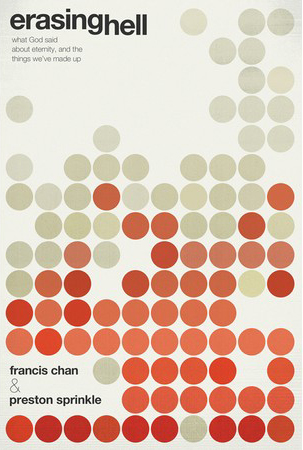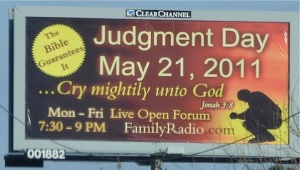I received a review copy of Francis Chan’s new book Erasing Hell: What God Really Says About Eternity and the Things We Made Up from David Cook Publishing and agreed to post my thoughts this week. I am not required to post a positive review, all of these thoughts are my honest reactions.
Who is Francis Chan? Just about one of the better evangelical speakers around. He has a fantastic presence, possess excellent communication skills, and is “likable”. He has a casual, “say it as it is” style, yet uses a lot of passion, and is Biblically informed. From the back of his book: “Francis is a pastor, international speaker, and church planter, is the New York Times bestselling author of Crazy Love and Forgotten God. Chan is also on the board of World Impact and Children’s Hunger Fund.”
Why the Book? As you probably know, there has been a lot of interest surrounding heaven, hell, and the afterlife since Rob Bell released Love Wins. A plethora of books are being released on the subject and among all of them, I was interested in reading Chan’s thoughts. As you can see from the previous paragraph, I appreciate him and as a result, know that this post is not objective (as if one actually could be completely objective). I’m sure most of these books are not being written mainly out of a motive for profit but I’ve been wrong before. If you know Chan’s story, you’ll know that money is not a motivating factor for him which draws me more to the book and given the attention surrounding these types of books, I feel this should be said.
 What I Liked
What I Liked
– He and his friend Preston Sprinkle (who has a Phd in New Testament studies and is a professor at Eternity Bible College) spent as much attention has possible focusing on the Biblical texts that talk about the afterlife.
– As alluded to earlier, because of who Chan is, I was excited to read how he would respond to Bell. Though I didn’t always appreciate what Chan was saying, I did like how he was saying it. And I find that to be very important if we really are interested in conversation.
– The tone of the book is very pastoral. I’m a sucker for this and I know I keep saying it but there are good number of pastors who know how to address an audience. I think Chan does as excellent of a job as anyone.
– This is an excellent book for small group study and expect that it will sell numerous copies for this reason alone and I’m sure there will be a group study questionnaire guide released by the time I finish this post.
– Really liked Chapter 2 “Has Hell Changed? Or Have We?” (not really the title but the content was solid) and loved Chapter 5 entitled, “What Does This Have to Do with Me?” Seriously, the best chapter in the book and reminds of why I appreciate Chan. I’d even say that chapter saved the book for me.
– Liked his treatment of “gehenna”. I did always believe that Jesus is referring to a garbage dump and I’m yet not convinced that he’s not. However, between Chan and Scot McKnight’s post on the subject, I do need to give it’s due attention.
– I expected Chan to lay off certain difficult thoughts (like in Chapter 6 but he took everything head on). Not sure if he gave it the space needed but it’s an excellent summary that points to God’s sovereignty and man’s need for humility.
– Chan’s wrestling with certain difficulties (but I quietly wished he would have shared more).
– the bibliography (though I wished he would have used NT Wright’s Surprised By Hope a bit more)
What I Wasn’t Crazy About
– As much as I like Chan, I really didn’t like the title or subtitle (didn’t really care for the video either). I know many times the author doesn’t decide on that and I get what they’re trying to say but I feel it’s poorly titled. I also find the subtitle to be pretentious. Does anyone really know what God says about eternity? Let he who is without sin lift up his perfect hermeneutics.
– Not sure of the first chapter on universalism was the place to begin though it was well-written. After my second reading, I thought chapters 1 and 2 should have been flipped. That said, I think Bell would agree with what Chan is saying and respond with, “Right that’s why I’m not a universalist either.”
– I felt that Chan wasn’t really responding to Bell but instead merely recentering the classic evangelical teaching of eternity. He just happens to say it better than most because of his exceptional communication skills but I think discerning readers will be a disappointed that they already know much of this content (though it’s well organized). Consequently, if you are coming to this conversation late, I suggest you read Erasing Hell first, then read Love Wins. Because even though Chan references passages in LW, Bell is responding what Chan is articulating. Anyone else see this?
– While I didn’t want Chan to go blow for blow with Bell (like the way DeYoung did in his .pdf), I was expecting a little more engagement since it was marketed as a response. I would be very interested in seeing what was edited out :) Perhaps, I should say, it’s a good book, but not an excellent response.
– I feel there is room to speculate on the afterlife when you offer the disclaimer that you are speculating. Thus, I wished that Chan would have shared his imagination a bit more. That is what’s so powerful of the first third of Bell’s LW.
Conclusion
With all sincerity, I did enjoy reading Erasing Hell and I expect it to be the better among the “Response to Bell” books that are being released.
And though the content is much thicker than LW, it’s still reader-friendly. My advice is wherever you start read Surprised By Hope by NT Wright , Love Wins and Erasing Hell if you really are interested in the subject.
 Every year there is some type of theme. This year’s was “Say Good-bye to High School”. Which explains Owl City. Most of our students loved Fireflies … in 10th grade. But Owl City works well for us. Adam Young professes to be a believer, he creates fun music and he’s not trapped in the Christian sub-culture. The new album was just released last week and I’ve always wanted to take the group to Boston.
Every year there is some type of theme. This year’s was “Say Good-bye to High School”. Which explains Owl City. Most of our students loved Fireflies … in 10th grade. But Owl City works well for us. Adam Young professes to be a believer, he creates fun music and he’s not trapped in the Christian sub-culture. The new album was just released last week and I’ve always wanted to take the group to Boston. They are also special to me because of where they fit in my own life. Many of them were in the room when I announced publicly for the first time that we adopted Nathan. They were among the first to hear that Susan was pregnant with Dylan. And then again, that we are having a baby girl this September. In lesser of life importance but still very cool moments, we watched the Giants win the Super Bowl together and we cancelled Sr. High Youth group to watch the Yankees beat the Phillies in ’09 (we just knew it would happen in Game 6). We served on mission trips to New Orleans, an AIDS Camp in the Bahamas and picked up trash together and various other things. Looking back on it, I’m moved by how much we did together over the years.
They are also special to me because of where they fit in my own life. Many of them were in the room when I announced publicly for the first time that we adopted Nathan. They were among the first to hear that Susan was pregnant with Dylan. And then again, that we are having a baby girl this September. In lesser of life importance but still very cool moments, we watched the Giants win the Super Bowl together and we cancelled Sr. High Youth group to watch the Yankees beat the Phillies in ’09 (we just knew it would happen in Game 6). We served on mission trips to New Orleans, an AIDS Camp in the Bahamas and picked up trash together and various other things. Looking back on it, I’m moved by how much we did together over the years. What I LIked
What I LIked If she was a comic book character, she’d be armed with a scalpel and sleep in a botox chamber and fighting against an ugly character named Dr. Hideous. (I should totally pitch this to Comedy Central later today. Oh wait, I’m hanging out with students later – Oh well).
If she was a comic book character, she’d be armed with a scalpel and sleep in a botox chamber and fighting against an ugly character named Dr. Hideous. (I should totally pitch this to Comedy Central later today. Oh wait, I’m hanging out with students later – Oh well). What I Liked …
What I Liked … Here’s a bit of context first:
Here’s a bit of context first:
 So the question needs to be asked – why do this?
So the question needs to be asked – why do this? What Happens When His Prophecy of Jesus’ Return Not Happen on May 21st?
What Happens When His Prophecy of Jesus’ Return Not Happen on May 21st?




Recent Comments